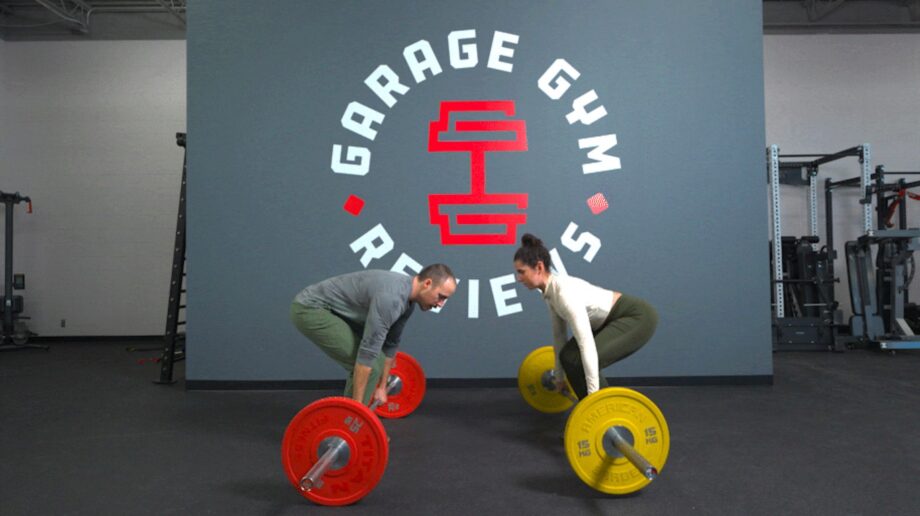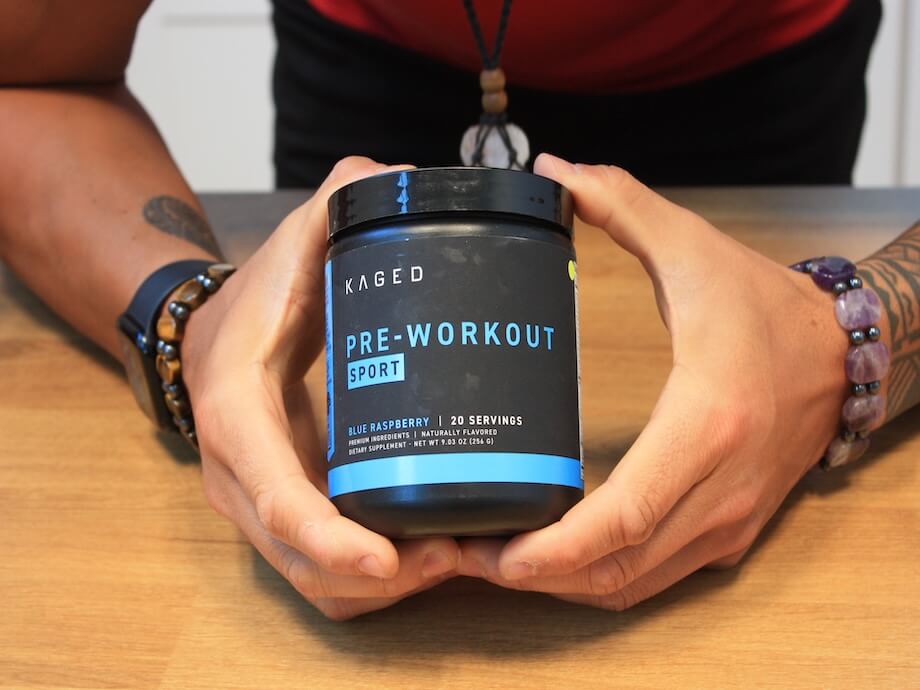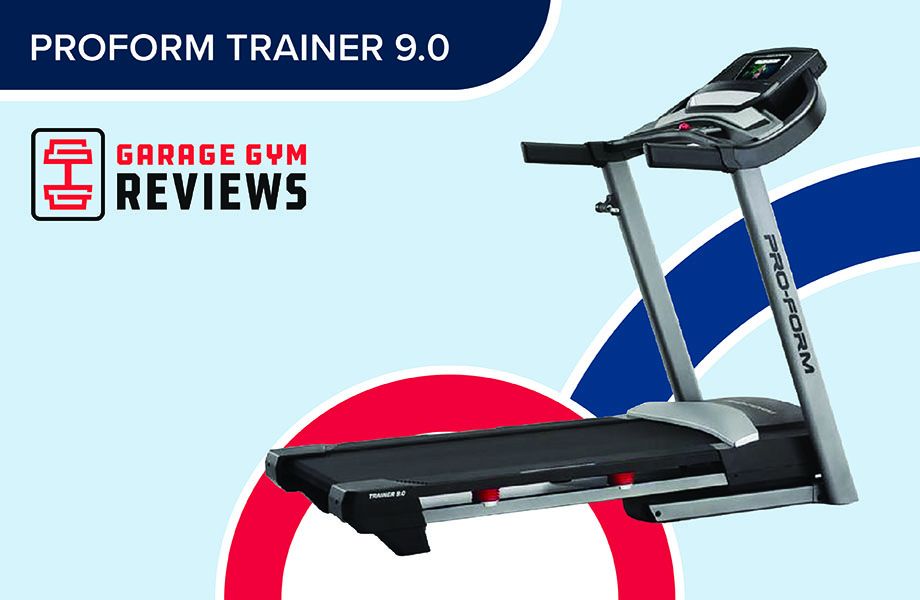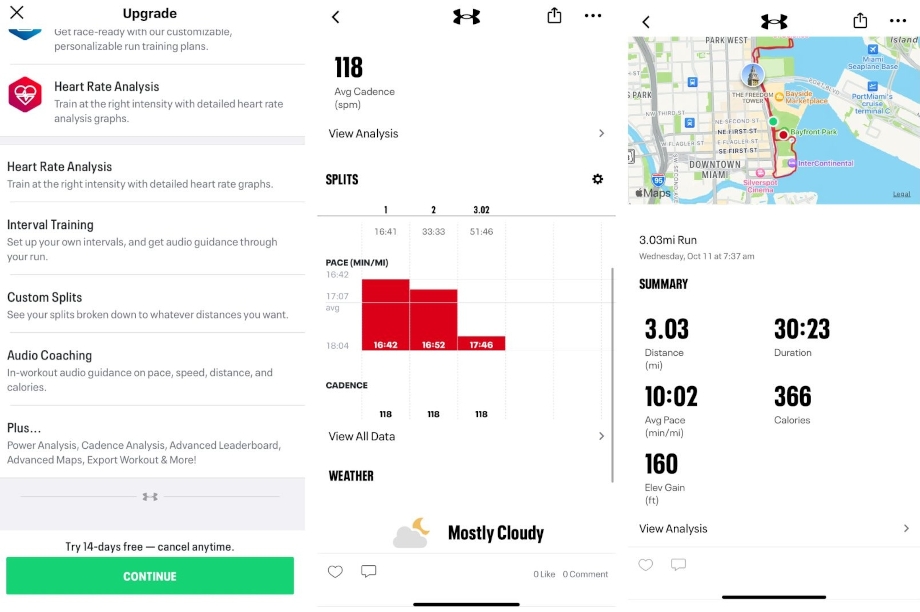If you’re “of a certain age,” you’re probably well-acquainted with lower back pain.
It’s a common ailment that, according to the 2017 Global Burden of Disease Study1, affects more than 577 million people. Low back pain was cited as the leading cause of disability in both 1990 and 2017, with researchers observing a substantial increase2 in affected individuals over the 17-year period.
That’s why taking measures now to build strength and stability in the back and core muscles surrounding the lumbar spine is so important.
Studies show3 that lower back exercises and core stabilization help relieve lower back pain, improve proprioception and balance, increase muscle strength, and reduce functional disability.
Here are 17 lower back exercises to get you started in strengthening and stabilizing your lower back, so you can keep you fit, limber, and pain-free.
RELATED: Muscle-Building Back And Shoulder Workout
Back Exercises for Strength
According to a 2016 review published in JAMA Internal Medicine4, “exercise alone or in combination with education is effective for preventing [low back pain].”
Here’s some exercise and education to help you build back strength during your next workout.
Deadlift
Why it’s great: The deadlift targets the lower back, glutes, hamstrings, and abdominal muscles while building functional strength. It’s one of the single best exercises you could do in the gym.
How to do it:
- Stand with your feet hip-width apart and a loaded barbell in front of you (you can also use dumbbells, kettlebells, sandbags, and more).
- Hinge forward at the hips, bend your knees slightly, and grip the bar using an overhand or mixed grip.
- With your back straight, core braced, and shoulder blades pulled back and down, drive from your heels, straighten your legs, and thrust the hips forward until you are standing.
- Squeeze your glutes, then slowly return to the starting position.
- Repeat as needed.
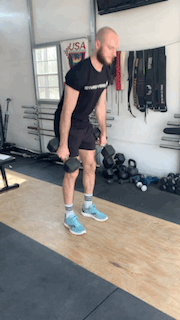
RELATED: The Deadlift: Muscles Worked
Rack Pull
Why it’s great: A rack pull basically is a deadlift with a shorter range of motion. You’ll target the same muscle groups, get the same strength and muscle-building benefits, but potentially lift even heavier weight.
How to do it:
- Set the safeties of a squat rack to approximately knee height.
- Load your barbell and set it on the spotter arms.
- Deadlift the bar following the steps above.
- Repeat as needed.
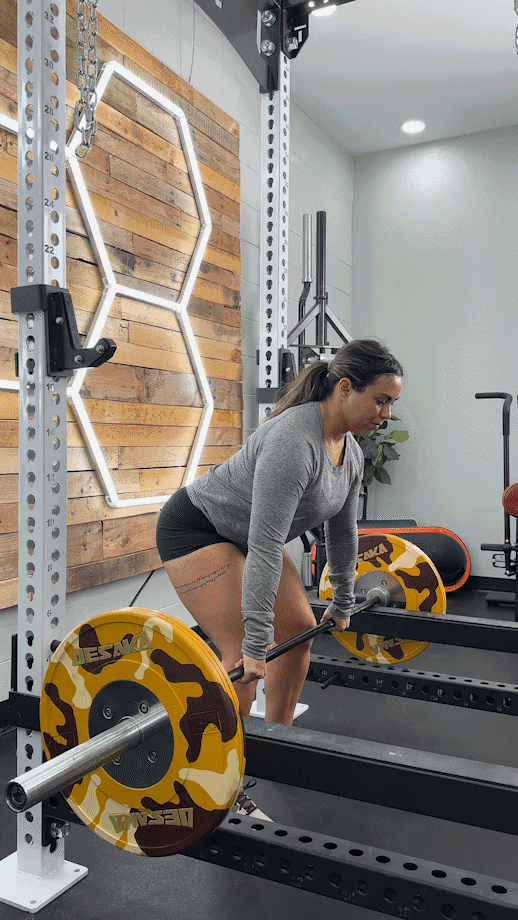
RELATED: The Best Squat Racks
Barbell Good Mornings
Why it’s great: Your classic good morning provides plenty of activation in the posterior chain, especially in the hamstrings which will feel a great stretch. Adding in the best Olympic barbell increases the challenge, commensurately increasing the strength-building benefits, too.
How to do it:
- Unrack a loaded barbell onto your shoulders and stand as though you’re about to squat.
- Hinge your hips back and bend very slightly at the knees while keeping your back flat.
- Continue lowering until your chest is parallel to the floor.
- Engage your glutes and stand back up, bringing hips to full extension.
- Repeat as needed.
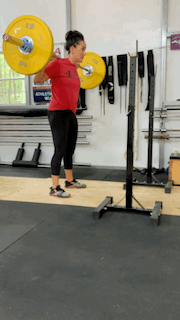
Back Extension
Why it’s great: Back extensions strengthen and stabilize the lower back, specifically the erector spinae, with minimal equipment. You could do this exercise using purely your own bodyweight or while holding a weight plate for some added resistance. (If you don’t have access to a machine, we have a guide on how to do back extensions at home.)
How to do it:
- Adjust a back extension machine to your specifications and hop on.
- Bend your hips and lower your back towards the ground. This is your starting position.
- Bend at the hips again to bring your back up until it’s in line with your hips.
- Slowly return to the starting position.
- Repeat as needed.
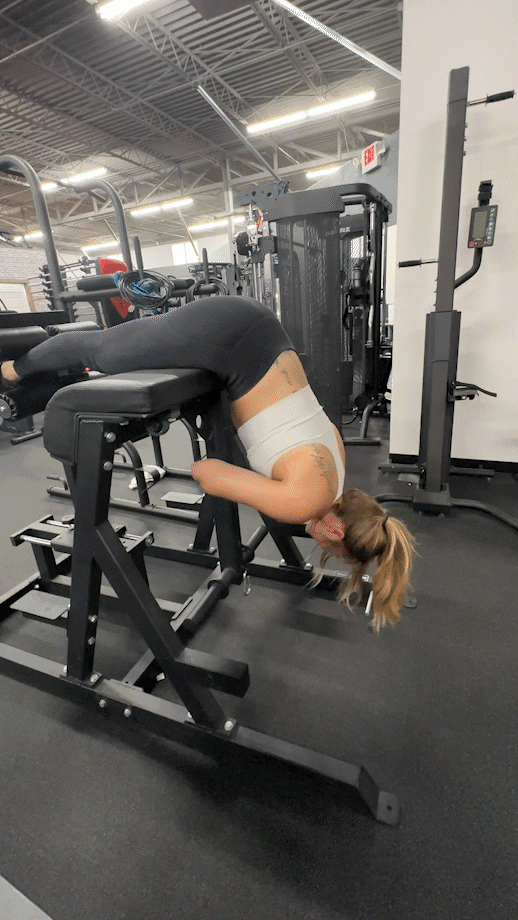
Kettlebell Swing
Why it’s great: Kettlebell swings are one of the most versatile and effective movements out there, providing muscle activation virtually everywhere. Plus, kettlebell swings “elicit a vigorous cardiovascular response” which, according to the International Journal of Exercise Science5, helps you build endurance and increase your VO2 max.
How to do it:
- Hold a kettlebell with both hands just below your groin.
- Bend your knees, lean forward, and swing the kettlebell upward to chest height by thrusting your hips.
- From there, let the kettlebell swing back down, between your legs, and behind you. As it starts swinging forward again, thrust your hips again to cycle into the next rep.
- Repeat as needed.
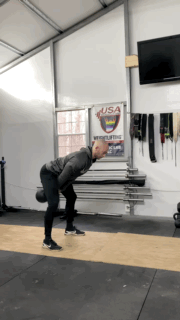
RELATED: What Is VO2 Max?
Glute-Hamstring Raise (Nordic Curl)
Why it’s great: Commonly called the Nordic curl, the glute-hamstring raise targets posterior chain muscles like the glutes, hamstrings, and lower back to build strength, stability, and hamstring flexibility.
How to do it:
- Lie prone and anchor your feet beneath something sturdy.
- Bend your knees and engage your hamstrings to lift your upper body into a vertical position while keeping your back straight.
- Slowly return to the starting position.
- Repeat as needed.
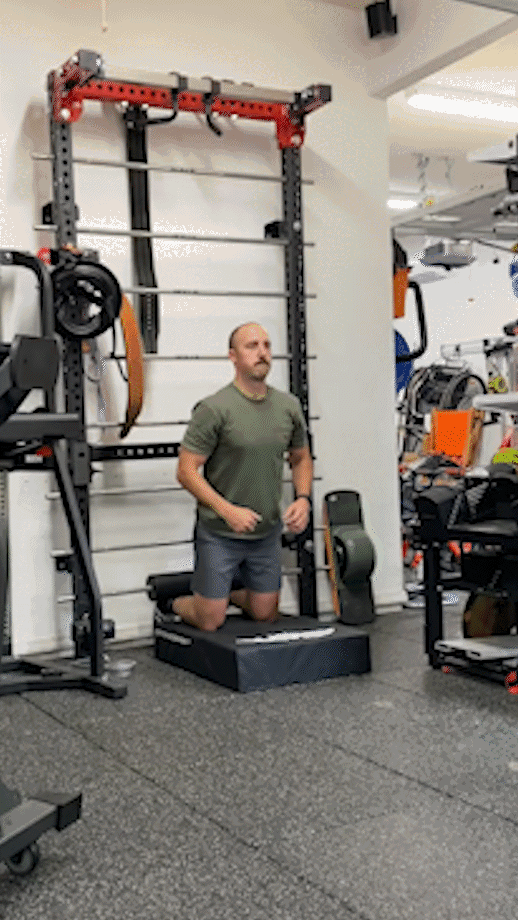
Superman
Why it’s great: It’s a bird. It’s a plane. It’s a bodyweight exercise that hits your lower back, glutes, and hamstrings to promote good posture and improve spinal alignment.
How to do it:
- Lie prone and extend your arms forward. Squeeze your glutes, shoulder blades, and lower back muscles.
- Lift your arms and legs off the floor as far as you can.
- Hold the position, then return to the starting position.
- Repeat as needed.
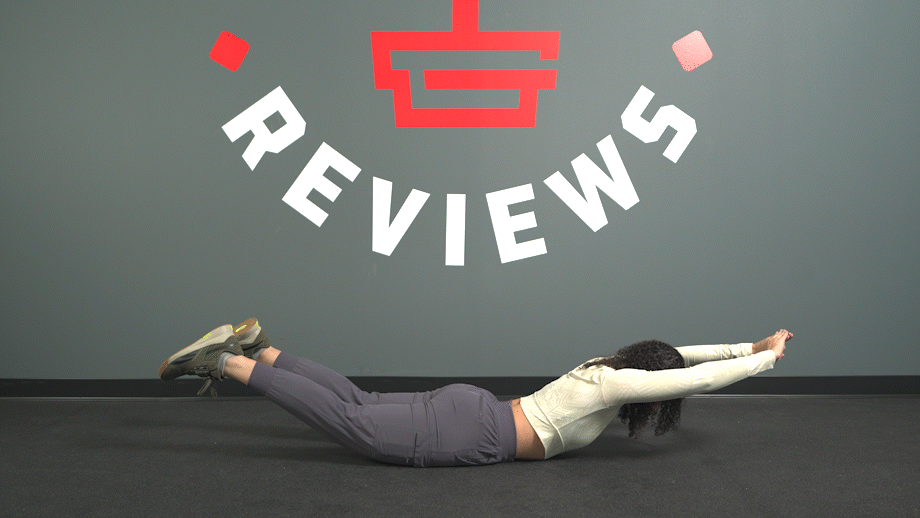
Romanian Deadlift
Why it’s great: The Romanian deadlift is basically a reverse deadlift. Instead of lifting the weights, in this deadlift alternative, you start from the standing position and focus on lowering the weights slowly, improving strength, stability, and flexibility in the posterior chain.
How to do it:
- Stand with your feet hip-width apart while holding a barbell or pair of dumbbells.
- Hinge forward at the hips, lowering the weights to the floor. Your back should be flat, shoulders back and down, core engaged, and knees slightly bent.
- Continue lowering until you feel a stretch in your hamstrings.
- Drive through your heels to return to the starting position.
- Repeat as needed.
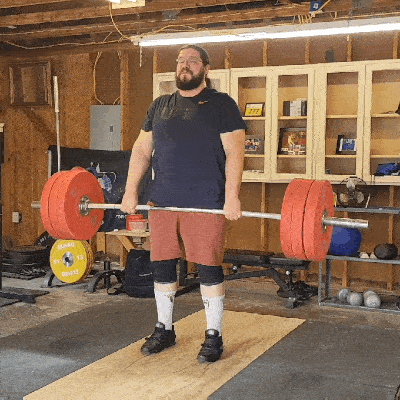
Bear Crawl
Why it’s great: Bear crawls aren’t easy. They are, however, functional, dynamic, and highly effective for engaging your lower back, shoulders, core, and hips.
How to do it:
- Start on all fours and lift your knees so they form 90-degree angles an inch off the floor.
- Move your right arm and left foot forward while staying low, then move your left arm and right leg forward.
- Repeat the movement, alternating sides, for the desired distance or duration.
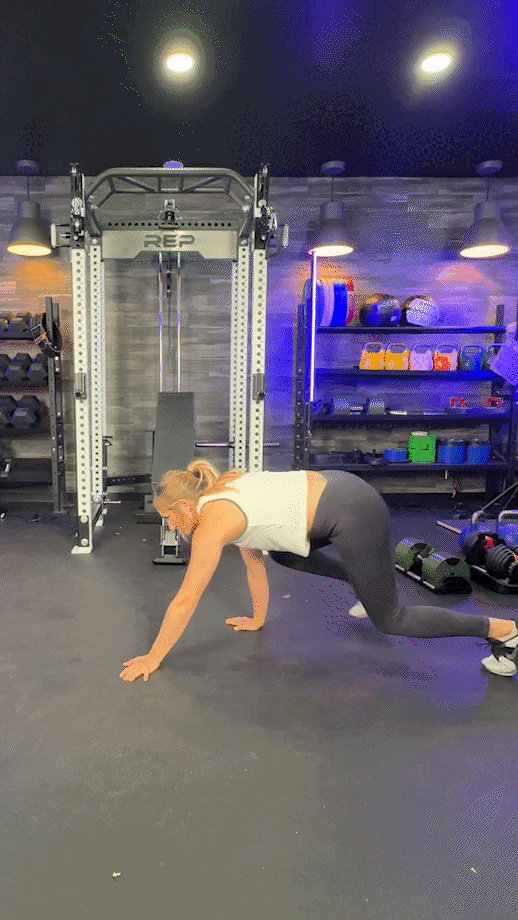
Back Exercises for Lower Back Pain Relief
Strengthening the back and core helps prevent lower back pain, while incorporating back stretches into your warm-up exercises and cooldowns assists in prevention and provides relief.
Here are some exercises and stretches for lower back pain relief.
Glute Bridge
How it helps: Glute bridges obviously activate the glutes, but they also improve lower back stability and hip mobility. Plus, the stretch in your lower back feels divine when you’re coping with lower back pain.
How to do it:
- Lie face up with your knees bent and feet flat on the floor.
- Pressing your feet into the floor, extend your hips and lift your butt off the floor.
- Flex the glutes at the top, hold the position, then slowly come back down.
- Repeat for desired duration or number of repetitions.
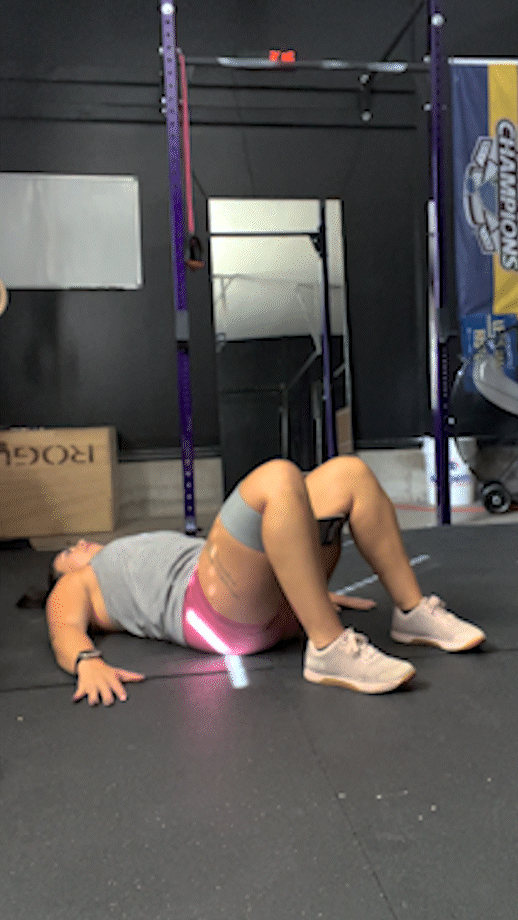
Bird Dogs
How it helps: Bird dogs engage multiple muscle groups, build core strength, and improve overall stability. They also require a neutral spine position, which promotes proper alignment and helps alleviate low back pain.
How to do it:
- Start on your hands and knees.
- Extend one leg and the opposite arm at the same time, forming a straight line.
- Hold briefly, then return to the starting position and switch sides.
- Alternate sides until the set is complete.
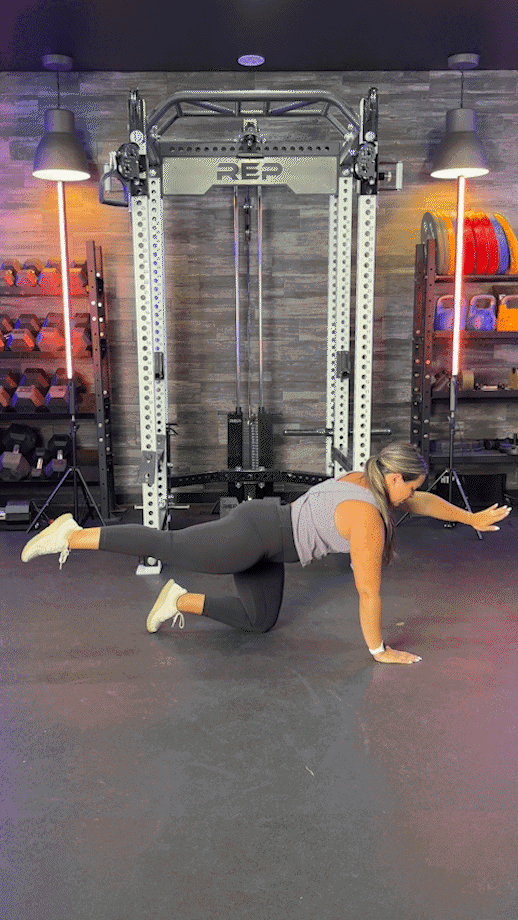
Cat-Camel
How it helps: Also called the cat-cow, cat-camel stretches have you alternating between flexion and extension of the spine, helping relieve tension, improve spinal mobility, and promote better posture.
How to do it:
- Start on your hands and knees.
- Take a deep breath in, then exhale as you pull your belly button toward your spine and your chin to the chest. This is the “cat” position.
- Inhale, relax your belly, then arch your back, bringing the tailbone to the ceiling. Untuck your chin and lift your head slowly. This is the “camel” or “cow” part of the stretch.
- Cycle between poses, syncing your breath with the movement, for desired duration or number of reps.
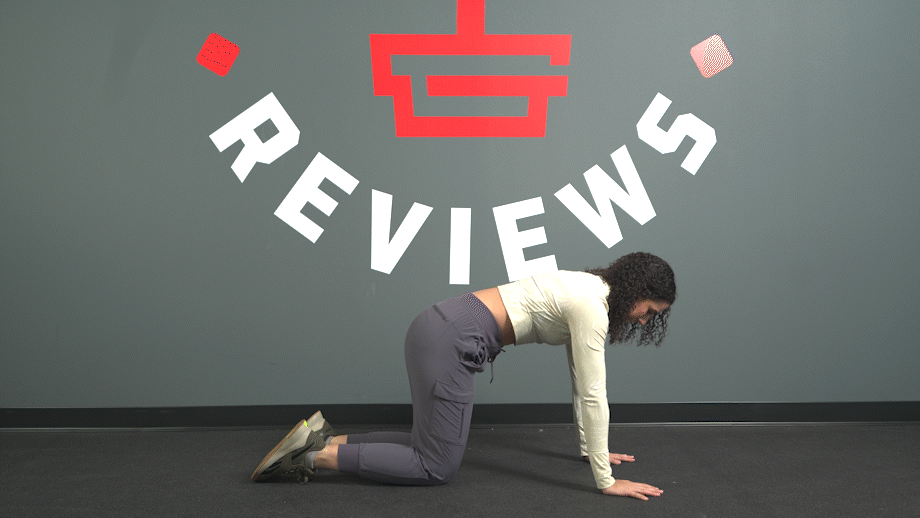
Supine Knees-to-Chest Stretch or Cross-Body Leg Stretch
How it helps: The knee-to-chest stretch is a great finishing stretch. It relieves lower back tightness, improves flexibility, and promotes relaxation after a rigorous workout.
How to do it:
- Lie on your back with your knees bent and your feet flat on the floor.
- Keeping your lower back pressed into the floor, bring one knee to your chest.
- Hold for desired duration.
- Option to bring that leg across the body for a deeper twist.
- Switch sides and repeat.
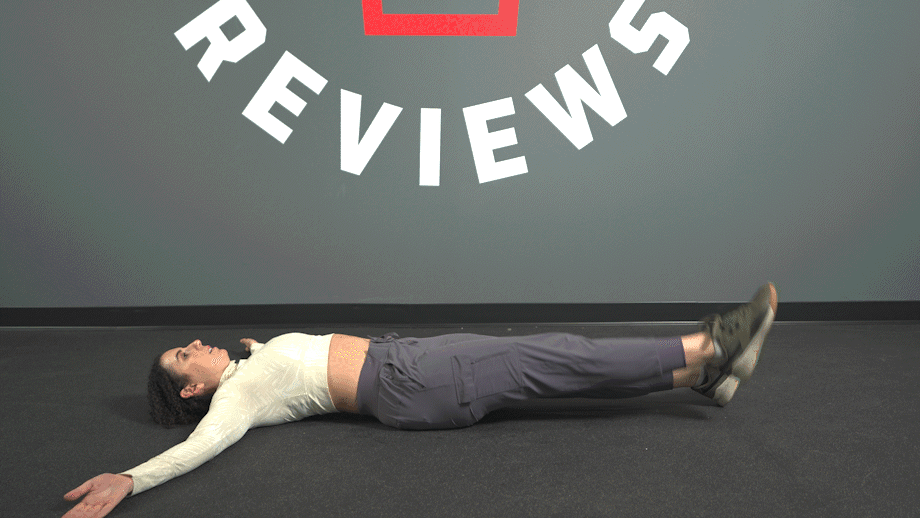
Child’s Pose
How it helps: Child’s pose is a popular restorative yoga pose, often performed at the end of the practice to help release tension and promote relaxation. You’ll feel it not only in your lower back and hips, but in the upper back and shoulders too.
How to do it:
- Start on your hands and knees.
- Spread your knees wide and bring your belly between your thighs, placing your forehead on the floor. Stretch your arms in front of you with the palms also on the floor.
- Hold for desired duration.
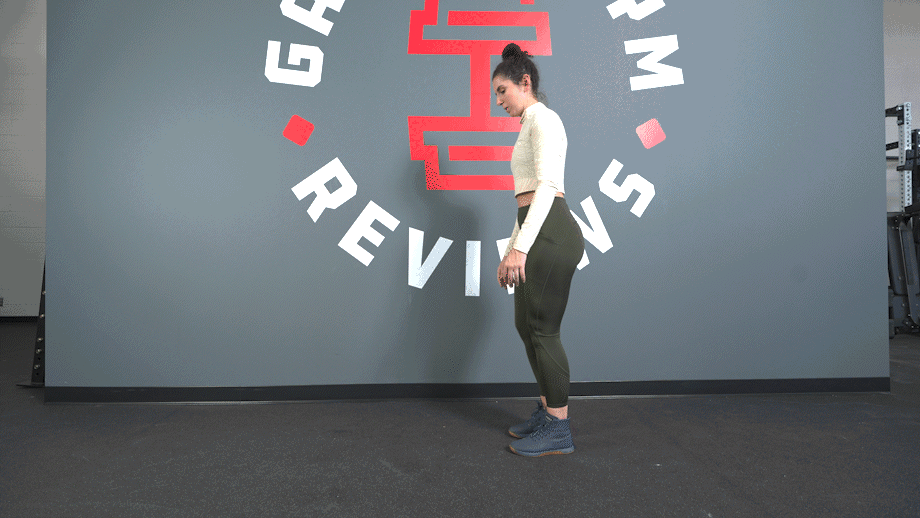
Seated Spinal Twists
How it helps: Seated spinal twists use a gentle twist to the torso to improve spinal rotation and release tension in the back muscles, providing pain relief to the area as well.
How to do it:
- Sit on the floor with your back straight.
- Place your right hand on the left knee and twist your torso to the left.
- Hold the pose, then switch sides and repeat.
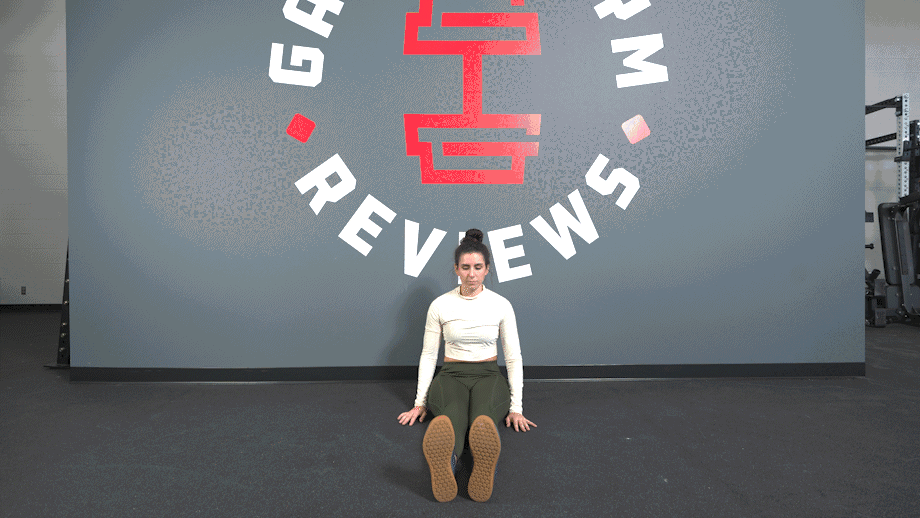
Supine Figure Four Stretch
How it helps: Many stretches involve lower back movements to provide pain relief. The supine figure four stretch, on the other hand, releases tension in the hips and glutes, which can also contribute to lower back discomfort.
How to do it:
- Lie on your back with your feet flat on the floor.
- Cross your right ankle over your left knee, keeping your right foot flexed.
- Bring your left knee to your chest, then reach your right hand through your legs and fold your fingers just below the left knee crease.
- Pull your left knee toward your chest with your arms, pausing when you feel a stretch in your right glute and hip.
- Hold the position, then switch sides and repeat.
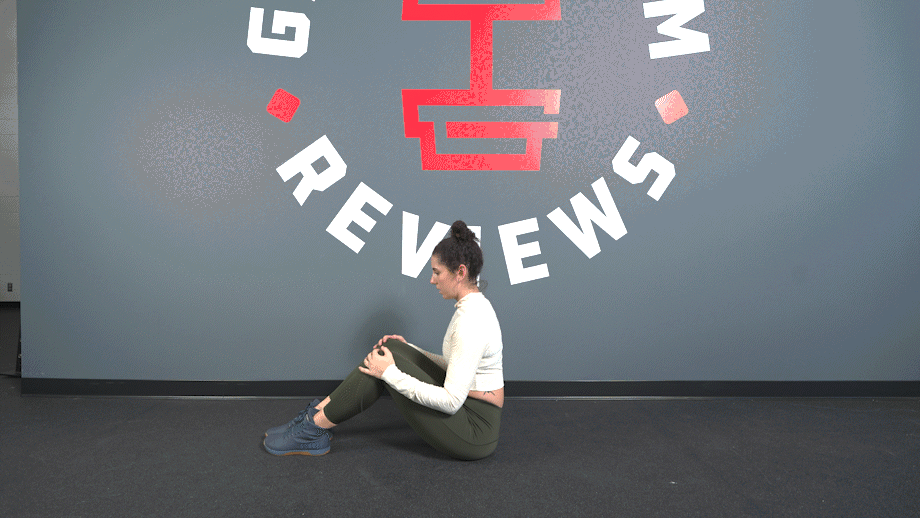
Forearm Plank
How it helps: Planks target all the abdominal muscles, including the obliques, for core strengthening, trunk stabilizing benefits that help prevent and alleviate lower back pain.
How to do it:
- Start on your hands and knees. Place your forearms and elbows on the floor.
- Step your feet back to form a straight line with your body.
- Hold for desired duration.
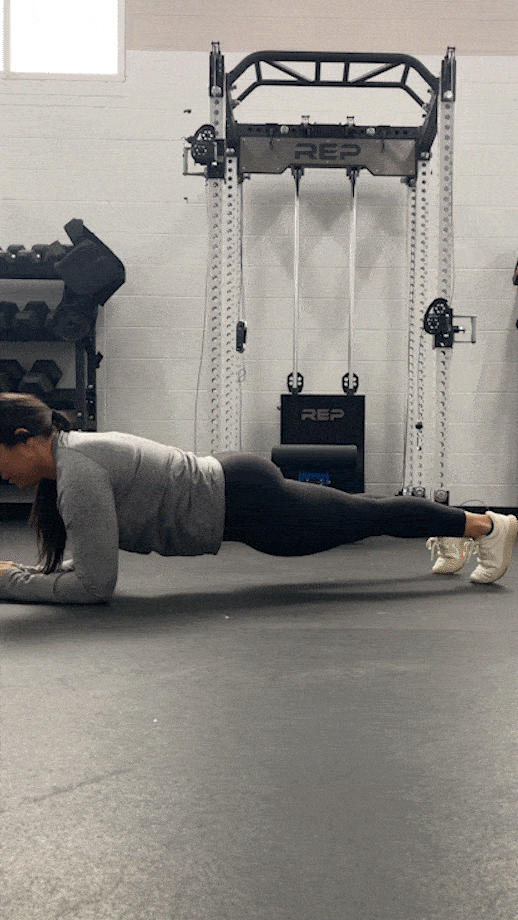
RELATED: The 12 Best Ab Exercises
Lower Back Exercises: Final Thoughts
Lower back pain remains one of the most common ailments in the world, negatively impacting the quality of life for millions of people.
Luckily, studies show that an exercise program with plenty of lower back exercises and stretches provide a wealth of health and wellness benefits, both preventing and relieving many types of lower back pain.
Try some of the above exercises during your next session!
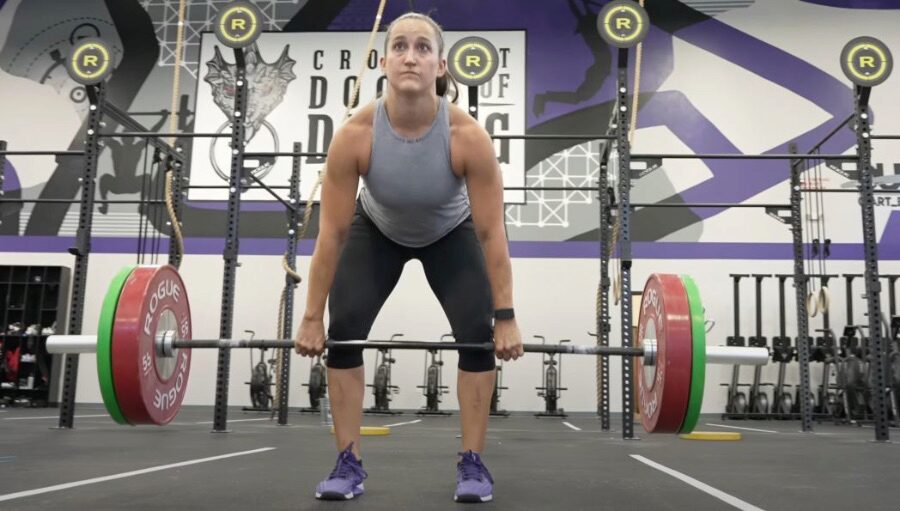
Lower Back Exercise: FAQ
What is the best exercise for the lower back?
Our list of lower back exercises includes some of the best, but what’s best for you will depend on your current fitness level, personal goals, and limiting factors.
For personalized strength training recommendations, consult a qualified coach or CPT. For personalized pain relief recommendations, consult a physical therapist.
What are three exercises that strengthen your back?
There are many back strengthening exercises out there, including the ones in this article that primarily target your lower back.
For overall strength, some of the best back exercises include the deadlift, bent-over row, and pull-up.
What should you not do with lower back pain?
People love to give you a general list of do’s and don’ts when you mention you’re coping with back pain. They’ll often tell you to avoid:
– Heavy lifting
– High-impact activities
– High-intensity exercise
– Sudden or jerky movements
– Prolonged sitting or standing
Some of this advice may be sound for your situation, but the main thing you should avoid is self-medication. You could read all about the common causes of back pain and create a program intended to alleviate yours, but this job is best left to a healthcare provider or medical professional.
References
1. GBD 2017 Disease and Injury Incidence and Prevalence Collaborators. Global, regional, and national incidence, prevalence, and years lived with disability for 354 diseases and injuries for 195 countries and territories, 1990–2017: a systematic analysis for the Global Burden of Disease Study 2017. The Lancet. 8 Nov 2018: 392.
2. Wu A, March L, Zheng X, et al. Global low back pain prevalence and years lived with disability from 1990 to 2017: estimates from the Global Burden of Disease Study 2017. Ann Transl Med. 2020;8(6):299. doi:10.21037/atm.2020.02.175
3. Hlaing SS, Puntumetakul R, Khine EE, Boucaut R. Effects of core stabilization exercise and strengthening exercise on proprioception, balance, muscle thickness and pain related outcomes in patients with subacute nonspecific low back pain: a randomized controlled trial. BMC Musculoskelet Disord. 2021;22(1):998. Published 2021 Nov 30. doi:10.1186/s12891-021-04858-6
4. Steffens D, Maher CG, Pereira LS, et al. Prevention of Low Back Pain: A Systematic Review and Meta-analysis. JAMA Intern Med. 2016;176(2):199-208. doi:10.1001/jamainternmed.2015.7431
5. Fortner HA, Salgado JM, Holmstrup AM, Holmstrup ME. Cardiovascular and Metabolic Demands of the Kettlebell Swing using Tabata Interval versus a Traditional Resistance Protocol. Int J Exerc Sci. 2014;7(3):179-185. Published 2014 Jul 1.


